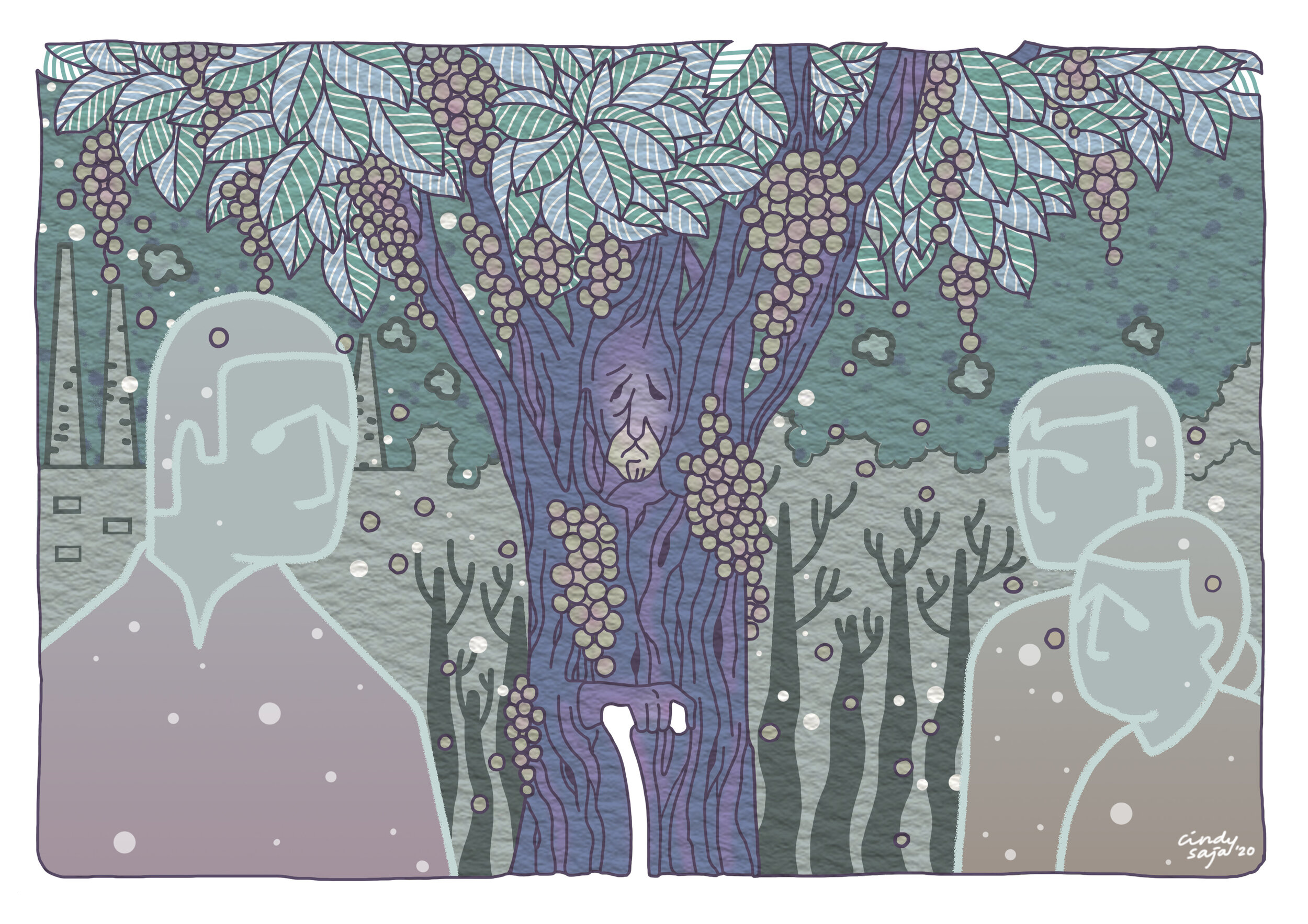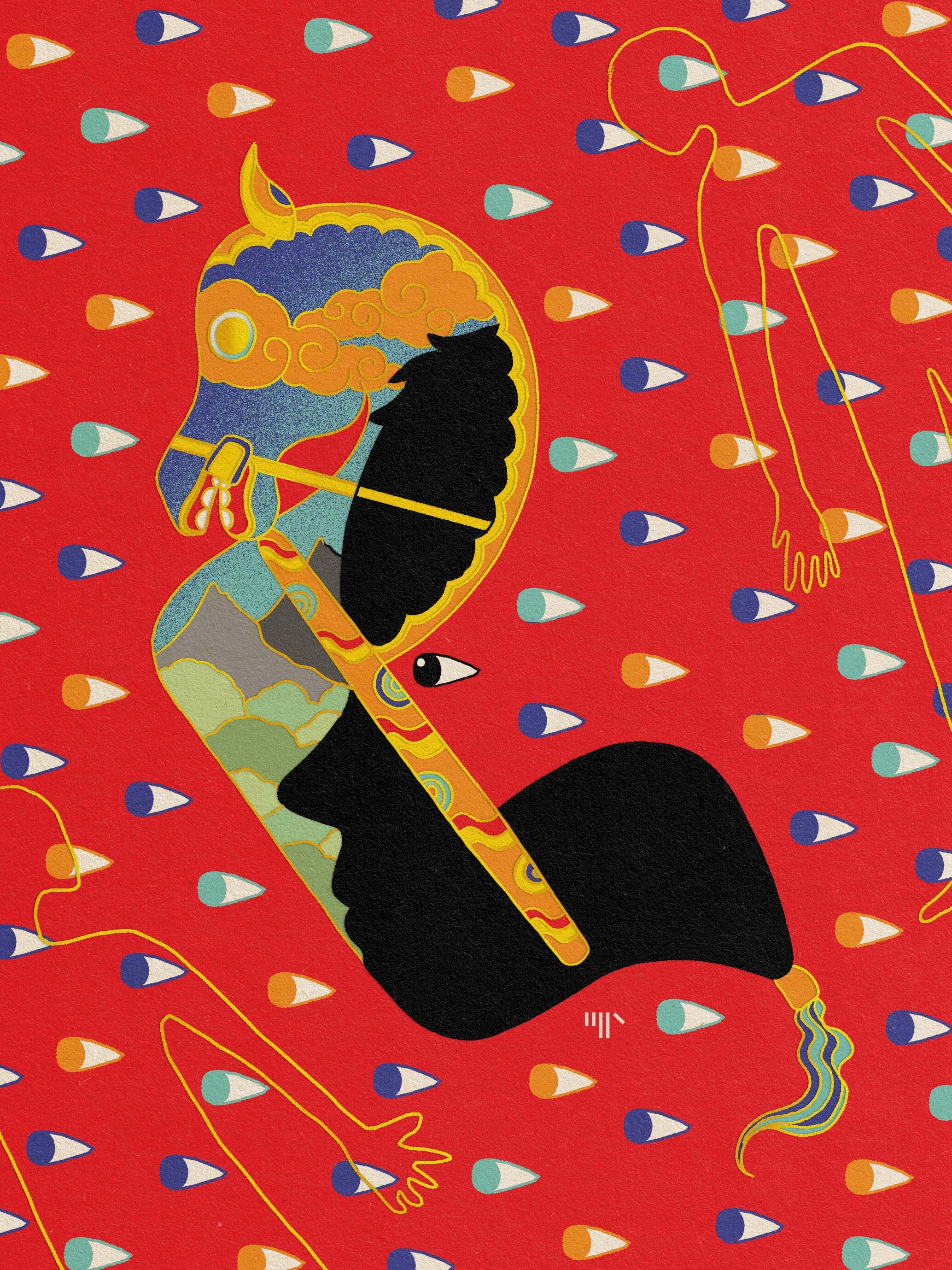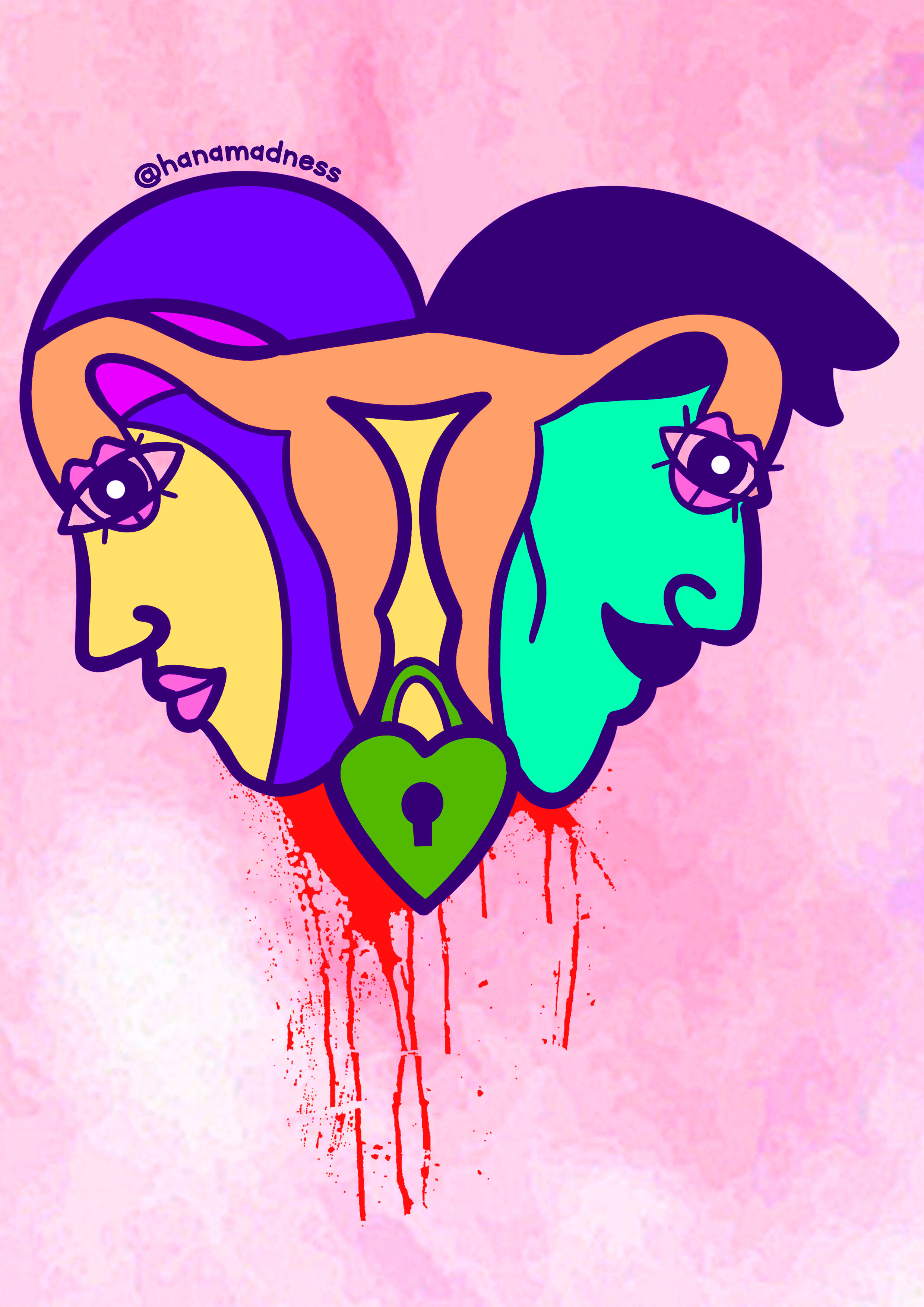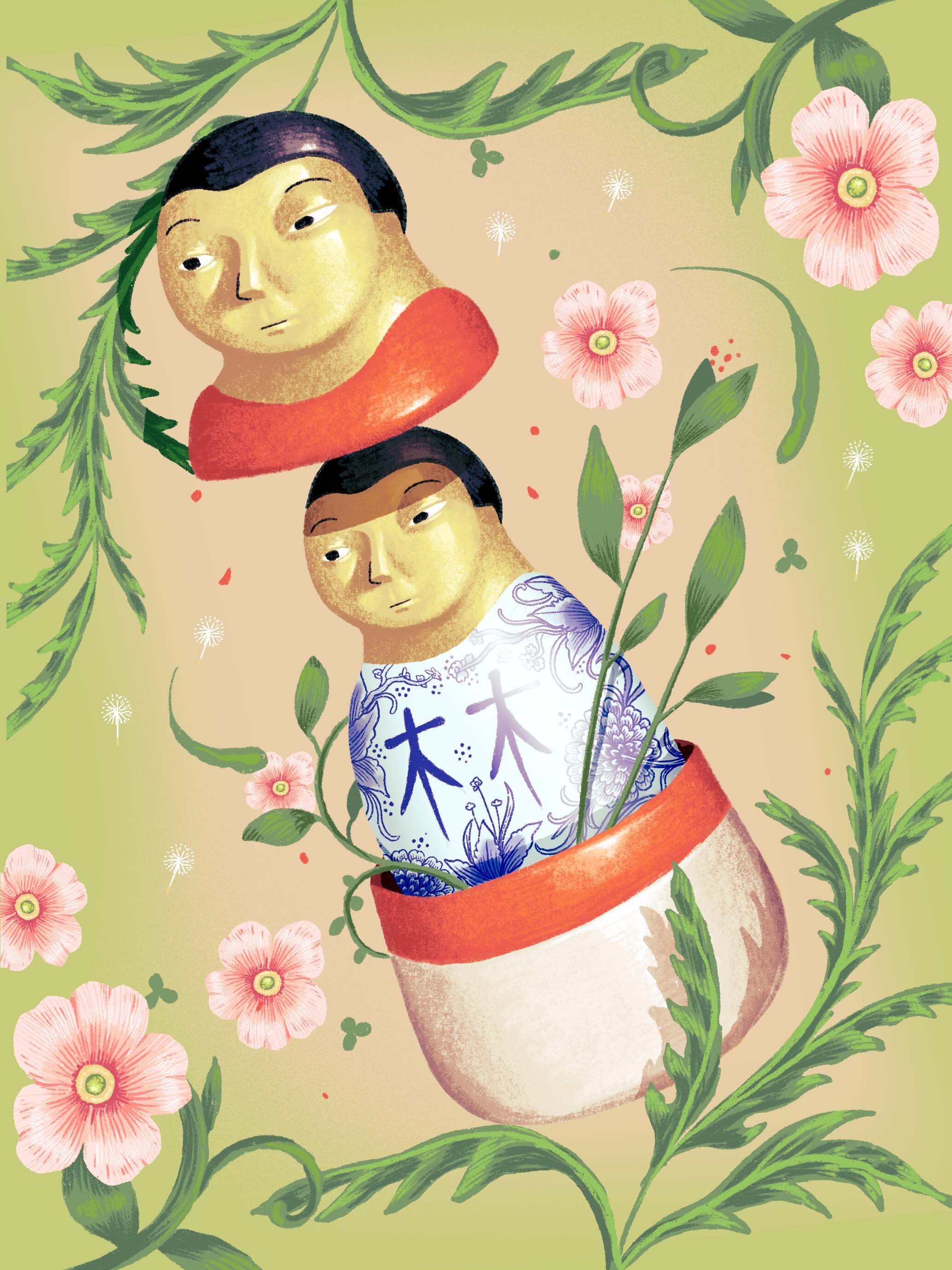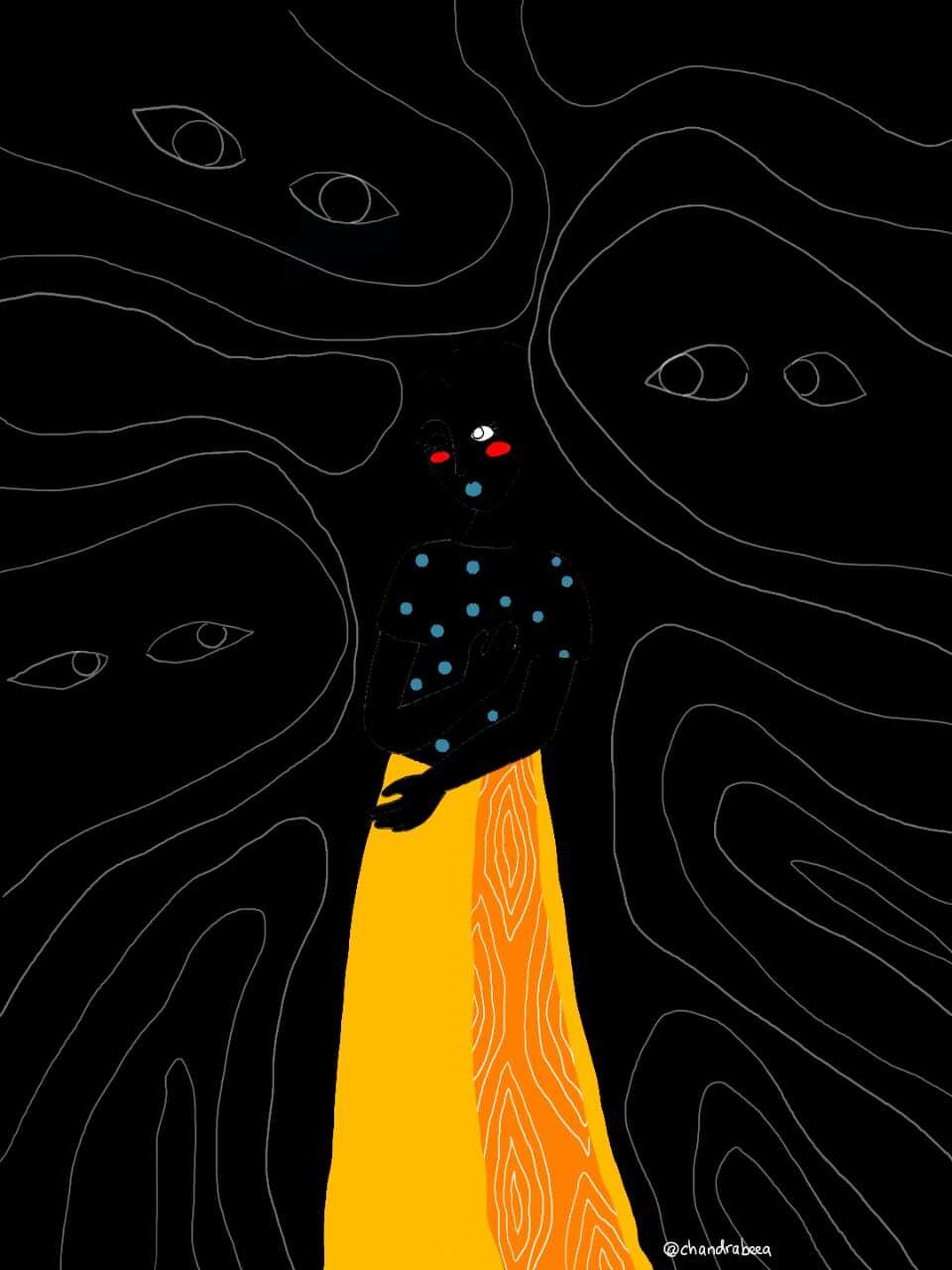Unrepressed
InterSastra dengan bangga mengumumkan penerbitan serial Unrepressed, atau Melawan Represi, 2019-2020.
Seperti kegiatan-kegiatan InterSastra lainnya, serial ini ditujukan untuk mendorong dan mempromosikan eksplorasi kreatif akan tema-tema keadilan dan kesurtiamanusiaan yang masih sering dianggap tabu, dipinggirkan, atau ditekan. Khusus untuk Unrepressed, kami berfokus pada cerpen, puisi, dan esai personal.
Tema-tema yang kami maksud mencakup keberagaman, kesetaraan, gender dan seksualitas, kelestarian lingkungan, hubungan keluarga, kesehatan mental, kekerasan fisik dan seksual, hak asasi manusia, pembaharuan dalam agama, dan masih banyak lagi. Serial Unrepressed ini melanjutkan serial Defiant Voices yang menerbitkan karya-karya penulis yang pernah mengalami represi, sensor, atau pemberangusan. Defiant Voices adalah bentuk perlawanan kami terhadap tindakan ormas, aparat, dan penguasa yang mendikte apa yang boleh atau tidak boleh kita baca serta acara budaya apa yang boleh atau tidak boleh diadakan. Kami percaya tiap pembaca bisa menilai sendiri manfaat sebuah bacaan baginya. Untuk Unrepressed, kami tidak ingin hanya menerbitkan karya para penulis yang dibredel, tapi juga membuka ruang bagi karya yang menyuarakan kisah orang-orang yang beragam, terutama yang tertindas; kisah yang menyuarakan kebenaran yang dibungkam atau diabaikan; kisah yang mungkin kontroversial tetapi jujur, menumbuhkan empati, mendobrak batasan dan membangun jembatan antara kita.
Karya-karya dalam Unrepressed 2019 diterbitkan dalam bahasa Indonesia dan Inggris, dengan tujuan mempromosikan karya itu seluas mungkin, dan kami pun berharap apabila ada protes atau serangan terhadap kami atau penulis, akan lebih mudah untuk menggalang dukungan global.
Para penulis yang termasuk dalam serial ini berasal dari banyak daerah di Indonesia dan luar negeri. Kami menerbitkan tidak hanya karya penulis mumpuni, tapi juga karya penulis awal karier yang menyuarakan kisah yang saya anggap perlu mendapat tempat. Karena itu, penerbitan serial ini pun menjadi kesempatan lokakarya bagi para penulis awal karier. Sebagai editor, saya berusaha memahami tujuan penulis dan menyadari keterbatasan perspektif serta posisi sosial-politik saya sendiri. Dengan kesadaran bahwa penulis lebih tahu konteks dan detail cerita, saya berusaha mendorong penulis untuk mewujudkan tujuan karya mereka sehidup mungkin.
Seperti pada serial Diverse Indonesia: Next Generation, kami memilih bekerja dengan penerjemah sastra awal karier. Mereka dibimbing oleh editor terjemahan yang berpengalaman, Tiffany Tsao. Maka, penerbitan serial Unrepressed ini juga menjadi ajang pelatihan bagi para penerjemah. Semoga dengan begitu, akan semakin banyak penerjemah yang sanggup memperluas jangkauan sastra Indonesia dan meningkatkan pertukaran sastra antara Indonesia dan dunia selebihnya, yang juga merupakan salah satu misi InterSastra.
Tak lupa, kami mengadakan diskusi interaktif seputar tiap-tiap karya yang kami terbitkan, terutama di media sosial. Diskusi dimulai dengan sama-sama membaca karya, lalu moderator mengajukan pertanyaan-pertanyaan untuk memantik diskusi. Kami memilih format itu untuk mendorong para pembaca untuk berpikir kritis dan membentuk pendapat sendiri berdasarkan apa yang tertulis dalam sebuah teks. Kami pun ingin membiasakan berdiskusi yang sehat dan belajar dari perbedaan pendapat.
InterSastra adalah inisiatif independen, kami bekerja keras agar dapat membayar penulis, editor, ilustrator, dan penerjemah. Kami percaya pekerja kreatif mesti dibayar untuk karya mereka. Terima kasih yang dalam kami haturkan kepada Kedutaan Norwegia di Jakarta dan Koalisi Seni Indonesia yang mendukung kegiatan-kegiatan InterSastra sejak Januari 2018 hingga Mei 2019. Sekarang kami tidak lagi memiliki pendanaan dari luar, oleh karena itu bantulah kami untuk membayar para penulis dan staf kami dengan membeli produk-produk yang kami tawarkan. Atau menyumbanglah melalui tombol di bawah ini:
Akhirnya, kepada kalian yang merasa terasing, kalian yang menolak dikecualikan dan dibungkam, yang terus mencinta walau sekeliling menghujat, yang berjuang dengan tulus untuk kemanusiaan—untuk kalianlah serial Unrepressed dipersembahkan.
Mari kita semua membaca dan merenungkan.
Eliza Vitri Handayani
Editor
(English version translated by Tiffany Tsao)
InterSastra is proud to announce the publication of our Unrepressed series.
Like our other activities, this series aims to encourage and promote creative exploration of progressive themes that are often sidelined, suppressed, or considered taboo, such as diversity, sexuality and gender equality, mental health, human rights, religious innovation, and much more. Unrepressed does this through short fiction and poetry.
The Unrepressed series came out of our past series, Defiant Voices, in which we published writers who have been censored, banned, or persecuted. We created the Defiant Voices series as a protest against intolerant groups and authorities who think they can dictate what we may or may not read, or what cultural events should or should not be held. We believe every reader can judge for themselves what a piece of writing means for them. Through Unrepressed we want not only to publish writers whose works have been banned, but also works that tell the stories of those who are oppressed; stories that may be painful or controversial to tell, but are honest and essential to our gaining a fuller understanding of who we are and where we’re going; stories that break down the barriers that divide us, evoke empathy and build bridges instead.
We are publishing the works of Unrepressed in both Indonesian and English with the goal of promoting them as widely as possible. It is also our hope that this will make it easier to rally international support if we or our writers find ourselves under threat or attack.
The writers featured in this series hail from many different parts of Indonesia and abroad. The works accepted for publication include ones by established writers, but also ones by emerging writers whose stories reflect experiences or identities that I deem to be under-represented. As such, the publication of this series has also become an opportunity for emerging writers to workshop their pieces. As the editor, I have tried to understand our writers’ aims and remain aware of the limitations of my own perspective and socio-political position. Keeping in mind that these writers know more than I do about the details and context of their stories, I have tried to push them to bring their visions to life to the best of their abilities.
As with our series Diverse Indonesia: Next Generation, we have chosen to work with early-career translators, who receive mentorship from our translation editor, Tiffany Tsao. In this way we also provide training for new translators. I hope this will result in a greater number of capable translators who will be in a position to broaden Indonesian literature’s reach, as well as increase literary exchange between Indonesia and the rest of the world—which is another one of InterSastra’s goals.
We hold interactive discussions about each work we publish, mostly through social media. Sessions begin with everyone reading the work, followed by the moderator posing questions to stimulate discussion. We’ve chosen this format specifically to encourage our readers to form their own opinions based on the text and always practice critical thinking. We want to show that we can have healthy discussion about difficult topics and learn from differences in opinion.
InterSastra is an independent initiative, we work hard to pay our writers, editors, illustrators, and translators. We believe creative workers must be paid for their work. Our deepest gratitude to the Norwegian Embassy in Jakarta and the Indonesian Art Coalition who have been supporting InterSastra’s activities from January 2018 to May 2019, namely House of the Unsilenced, Fashion ForWords, and the publication of this series. Now that InterSastra is without external funding, please consider helping us pay our writers and staff by purchasing various products we have on sale. Or, please consider making a donation by clicking the button below:
Lastly, to all those who feel like outcasts, who refuse to be excluded or silenced, who persist to love even as others shower you with hate, who fight with all your heart for humanity’s cause—we dedicate Unrepressed.
TIM REDAKSI // EDITORIAL TEAM
2018
Editor: Eliza Vitri Handayani
Poetry Editor: Gratiagusti Chananya Rompas
2019
Editor: Eliza Vitri Handayani
Translation Editor: Tiffany Tsao
Social Media: Fahrul Piliang
2020
Editor: Eliza Vitri Handayani
Translation Editor: Tiffany Tsao
Proofreaders: Chandra Bientang, Nathania Silalahi
DAFTAR ISI // CONTENTS
“Mediterranean Lyric and Other Poems” by Khairani Barokka, translated into Indonesian by Novia Rika Perwitasari
From memories of Islamophobia to the inhumane treatment of refugees, from the importance of local wisdom to Javanese mythology, this is a deeply immersive collection of poems from writer/performer/producer Khairani Barokka.
Khairani Barokka, aka Okka, is the writer/performer/producer of, among others, a deaf-accessible, solo poetry/art show, Eve and Mary Are Having Coffee. It premiered at Edinburgh Fringe 2014 as Indonesia’s only representative, with a grant from HIVOS. She was recognized in 2014 by UNFPA as one of Indonesia’s “Inspirational Young Leaders Driving Social Change", for highly prolific, pioneering international work in justice-oriented arts.
“The Betang” by Restiana Purwaningrum, translated into English by Zoë McLaughlin
“The Betang is a symbol. If the Betang collapses and vanishes, then the values we’ve preserved will be lost as well,” a mother tells her child. A traditional Dayak longhouse in Kalimantan, the Betang is home to thirty-three families. But not everyone loves the Betang.
Restiana Purwaningrum was born and lives in Sintang, West Kalimantan. In February 2020 her first novel, Bumi Ayu (Pataba Press 2019), was adapted into Balada Bumi Ayu, a collaborative performance of dance, traditional music, monologue, and audio visual content held at the Canopy Center, Sintang.
“Sacred Land and the Wound in Ebak’s Chest” by Adam Yudhistira, translated into English by Julia Winterflood
Summoned home to Sumatra by his aging father, an eldest son must face the reality of his family’s land being threatened and his inability to help. This is a timeless tale of unstoppable industry and equally enduring folklore.
Adam Yudhistira lives in Muara Enim, South Sumatra. He has written many short stories, children's stories, essays, poems, and book reviews which have been published in various print and online media.
“The Village of Angels” by Aflaha Rizal Bahtiar, translated into English by Ruby Astari
In a village renowned for the selflessness of its residents, things aren’t quite what they seem. This is a textured tale about the transcendental power of words, and the importance of peering beneath the surface.
Aflaha Rizal Bahtiar was born in Bogor in 1997. His published works include the short story collections Cuaca Sama (2016) and Cuaca Sama II (2017), and a poetry collection Kenangan Tidak Terbuka (Kuncup, 2019).
“Wajo” by Tjak. S Parlan, translated into English by Clarissa Goenawan
A woman and her friend reminisce about someone dear who is no longer with them. Juxtaposing the beauty of nature with the horrors of forced development, this is a poignant glimpse into the challenging lives of those who live off the land.
Tjak S. Parlan was born in Banyuwangi in 1975. His short stories and poetry have been published in various media and anthologies.
“The Pick Up” by Febry Pramasta Said, translated into English by David Setiawan
A son recounts the bloody events that led to the disappearance of his father during modern Indonesia’s darkest period. This is a chilling insight into the legacy of trauma and grief suffered by the victims’ families.
Febry Samasta Said was born in 1992 and currently resides in Medan, North Sumatra. He’s an independent creator who has worked in several theatre studios in Medan.
“Anjelo” by Lewis Siahaan, translated into English by Sunny Reken
Late at night, at a busy intersection in Medan, an unlikely friendship is formed between two people who feel they’ve been left behind by their country.
Lewis Siahaan was born in Medan in 1995. He is a writer and alumni of UNIMED History department. During college he was active in the BARSDem Student Study Group.
“The Steps that Disappear Beneath the Shadows” by Nurillah Achmad, translated into English by Aditya Ramadhan
“You cannot dance properly if you only focus on the motions. Be one with nature. Greet God and our ancestors. Only then you will come out as one with the Jaranan.” Step into the sonorous world of a Jaranan dance troupe in Jember, during modern Indonesia’s bloodiest era.
Nurillah Achmad is a writer of short stories and poems. She graduated from TMI Putri Al Amien Prenduan, Sumenep and the University of Jember, Faculty of Law.
“Barbed Dusk” by Bagus Pribadi, translated into English by Muthia Sayekti
A couple work relentlessly on a vast palm oil plantation until tragedy strikes and they are forced to leave, only to find their new home is just as unwelcoming. This is a rare insight into the human face of Indonesia’s most controversial industry.
Bagus Pribadi was born in Koto Kampar, Riau, in 1999. He is currently studying at the Department of Communications, UIN Sultan Syarif Kasim, Riau. He is editor-in-chief of the Student Press Institute (LPM), and received the Fellowship Workshop and Diversity Coverage from the Journalists Union for Diversity (SEJUK) in 2019.
“Sorry, Prisoners Don’t Need Delicious Food!” by Umi Salamah, translated into English by Aditya Ramadhan
A new staff member at a prison grapples with a moral quandary when he realizes the other officers are lying to the inmates, while robbing them of their only pleasure.
Umi Salamah was born in Kebumen in 1996. She writes novels, short stories, poems, book reviews, and articles. Her works can be found in various short story and poetry anthologies, in book form, and in print media.
“Marsiah Imprisoned” by Marliana Kuswanti, translated into English by Ruby Astari
Despite her soundproof alibi and the fact she would never voluntarily harm a living creature, a domestic helper is incarcerated for life. This is a gripping interrogation of society’s unceasing tendency to doubt a woman’s truth.
Marliana Kuswanti was born in Purwokerto in 1988. She writes fiction and nonfiction. Her writing can be found in Femina, Kartini, Media Indonesia, Gadis, Detik, Kompas.id, Basabasi, IDN Times, and other media platforms.
“Kasi’s Tale and Other Poems” by Dadang Ari Murtono, translated into English by Sunny Reken
Haunting myths and local lore are woven into a backdrop of the nation’s darkest period. Immerse yourself in the ethereal world of these poetic narratives by a prolific, award-winning young writer from East Java.
Dadang Ari Murtono was born in Mojokerto, East Java. His published works include the poetry collections Ludruk Kedua (2016) and Jalan Lain ke Majapahit (2019), as well as the novels Samaran (2018) and Cara Kerja Ingatan (2020).
“Spirit Testimony Recorder” by Ken Hanggara, translated into English by Nicolaus Gogor Seta Dewa
A man thought to be murdered manages to escape. Assassinated for his special ability to speak with spirits, the man must decide to assist the course of justice or ensure the safety of his family.
Ken Hanggara was born on 21 June, 1991. He’s been writing short stories, poems, essays and screenplays since 2012.
“Before Old Age and Other Poems” by Abdee Wahab, translated into English by Madina Malahayati Chumaera
Intimate yet expansive, this collection of five poems by a young poet and librarian from South Sulawesi spans urban discontent to shattered childhood memories.
Abdee Wahab was born in Pinrang on October 17, 1994. He is active as a librarian at Katakerja in Makassar, where he currently lives. His poems have been published in several anthologies and online media. He can be found on Twitter at @abdeewahab_ and on Instagram at @abdeewahab.
“The Reconciliation of Memories and Other Poems” by Syafri Arifuddin Masser, translated into English by Novia Rika Perwitasari
Harsh realities are painted with vivid imagery in this stirring collection of eight poems by Syafri Arifuddin Masser, a literary activist from Sirindu in West Sulawesi.
Syafri is a graduate student majoring in English Literature at Muslim University of Indonesia’s Faculty of Literature. During the past year he has worked part-time as a radio announcer and tutor, but is now spending more time at home to manage his podcast Semesta Poetry, as well as YouTube book reviews.
“Memory ‘77” by Aprila Wayar, translated into English by Nataya Bagya
While participating in a workshop to discuss the various kinds of military oppression that have happened in Papua, a woman shares the story of her village being destroyed for the very first time.
Aprila Wayar was born in Jayapura in 1980. She is a writer and freelance journalist. Her novels are Mawar Hitam tanpa Akar (A Black Rose without Roots, 2019), Dua Perempuan (Two Women, 2013), Sentuh Papua (Papua’s Touch, 2018), and Tambo Bunga Pala (2020).
“Rukmini” by Dias Novita Wuri, translated into English by Julia Winterflood
A daughter recounts vignettes from her mother’s transformation into a jugun ianfu, a concubine for the Japanese during their occupation of the Dutch East Indies in World War II.
Dias Novita Wuri has published short stories since 2012. Her first book, Makramé (2017), was translated into English under the title The Wedding Night and Other Stories. Makramé was longlisted in the Khatulistiwa Literary Awards 2018 for First or Second Book by an Author.
“Blood” by Utami, translated into English by Zoë McLaughlin
A recently married young woman learns the truth about how her husband and his family sees her.
Utami is an employee at a private company and is learning to write. Her writing has been included in the anthology The Self/Diri (2019).
Poems by Arif Fitra Kurniawan, translated into English by David Setiawan
Poems rich in imagery that often ask difficult questions of parents and the world, by acclaimed poet and writer from Semarang, Arif Fitra Kurniawan.
An avid writer since elementary school, Arif pens poems, short stories, essays, and children’s stories. A number of his works have been published, in print and online, in many outlets.
“Cukup Sendiri” by Elizabeth Flux, translated into Indonesian by Nicolaus Gogor Seta Dewa
A young boy moves to Australia with his parents. To grapple with bullying and isolation at school, he seems to split in two. But is this division imagined or real? Temporary or permanent? This short story by award-winning writer and editor Elizabeth Flux captures what it’s like to be outside the dominant culture.
Elizabeth Flux is an award-winning writer and editor whose fiction and nonfiction work has been widely published, including in Best Australian Stories, The Guardian, The Saturday Paper and The Big Issue.
“Xingshi 姓氏” by Clarissa Goenawan, translated into Indonesian by Nataya Bagya
A young Chinese husband and new father sets sail from Fujian for Surabaya. In this distant yet strangely familiar land, he succumbs to pressure to start a new family, but the government's anti-Chinese regulations will force him to question the resilience of ancestry.
Clarissa Goenawan is an Indonesian-born Singaporean writer and translator. Her award-winning short fiction has appeared in literary magazines and anthologies in Singapore, Australia, Japan, Indonesia, the UK, and the US.
“Night Prayer” by Shofwan, translated into English by Sarita Supratman
Plagued by nightmares about hell and disgusted by his coworkers’ bigotry, a man rejects the faith of his upbringing. But an encounter with a childhood friend causes him to revise his assumptions about God.
Shofwan is a writer in the making. His debut short stories “Kabut” (Fog) and “Lagu untuk Blih” (A Song for Blih) were published by Suara Kita in an anthology titled Pengakuan (Confession).
“The Assault on Estella” by Tiffany Tsao, translated into Indonesian by Norman Erikson Pasaribu
Estella dipacari oleh Leonard dengan begitu menggebu, tapi kebahagiaankah yang didapatkannya?
Tiffany Tsao is writer and literary translator. She is the author of the novel The Majesties (originally published in Australia as Under Your Wings) and the Oddfits fantasy series. Her translations of Norman Erikson Pasaribu’s poetry have won the English PEN Presents and English PEN Translates awards.
“Daddy” by Benefita, translated into English by Muthia Sayekti
A father forces her daughter to train as a doctor, although she years to become a pianist. She has to find a way to make him happy, including by cutting her own heart.
Benefita likes to write horror and thriller stories the most. She also enjoys writing romance and fantasy.
“When Mother Came”, by Dwi Ratih Ramadhany, translated into English by Clarissa Goenawan
A young mother feels under pressure when her own demanding, superstitious mother comes to visit. Does paradise truly reside under mother’s feet?
Dwi Ratih Ramadhany is a writer, a freelance editor, and a mother. She is involved in the Ruang Perempuan dan Tulisan program.
Poems by Cyntha Hariadi, translated into English by Dhania Sarahtika
Stunning poems about motherhood and women, and how we judge them.
Cyntha Hariadi writes fiction and poetry. Her new novel Kokokan Mencari Arumbawangi was published January 2020.
“The Ocean, the Father, and the Daughter” by Feby Indirani, translated into English by Sebastian Partogi
A father believes it is his God-given duty to protect his daughter from men’s gaze and touch. When she is drowning and male lifeguards are running towards her, he knows exactly what he must do.
Feby Indirani is an author and media practitioner.
“Munada” by Mardian Sagian, translated into English by Liswindo Apendicaesar
For over a decade there has been no baby boys born on the Island—no one to be the next imam of the sect. In order to stop the increasing number of girls, the current imam orders his followers to kill every female newborn. A woman with a painful past is said to keep all the seeds for baby boys in her womb.
Mardian Sagian is a writer and a bibliophile.
Poems by Budi Winawan, translated into English by Dhania Sarahtika
I will keep choosing to be born again, when I die.
Until I can freely choose…
Until I can remember and be aware
of how to become someone else.
Because I have been them.
Because I am them.
Budi Winawan is a poet who likes to perform live, a podcaster, and a video editor.
Poems by Ebi Langkung, translated into English by Madina Malahayati Chumaera
The hymn of night and day
of Sun and moon
Sends each other their souls’ light
Even a speck of dust or drop of dew
is never overlooked by your God
the Ever Laboring
Ebi Langkung is from Sumenep, Madura. His book of poems is entitled Siul Sapi Betina (The Cow’s Whistling, 2015).
“Untitled Selves” by Eliza Vitri Handayani, translated into Indonesian by the author
Those new gods and Men of Power wage theocide against the old Gods of the land, the forests, the mountains, the rivers and the rice fields and the seas—false Gods in their eyes, incompatible with this country’s values, they say—all the while forgetting that their Highest One is also foreign, coming from some sand-swept land. They forgot that the old Gods of the Land are their first mothers. Her rituals they declare blasphemous, her followers they impoverish, criminalize, brand as perverts.
Eliza Vitri Handayani is a novelist and founder of InterSastra.
“Rika” by Eve Shi, translated into Indonesian by the author
Although they are not Catholics, Rika and Lana go to a Catholic school. Rika is uncomfortable with attending church services, which are mandatory at the school. Their friendship grows and is tested as they share their thoughts on religion and faith.
Eve Shi is a novelist and short story writer. Her works have been published internationally.
“In My Body” by Indah Darmastuti, translated into English by Zoë McLaughlin
A story about a girl who has many animal powers within her.
Indah Darmastuti is a self-taught writer and producer of Indonesian literary audiobooks for the blind, which can be accessed for free at difalitera.org.
“K untuk Kecoak” oleh Julie Koh, diterjemahkan ke bahasa Indonesia oleh Eliza Vitri Handayani
Siapakah aku yang merasa pantas menceritakan kisah kecoak, makhluk yang sederhana? Aku, tentu saja, sadar akan fakta bahwa aku adalah seorang perempuan Anthropocene yang berkulit putih, dari kelas menengah, heteroseksual, dan cisgender.
Julie Koh is the author of Capital Misfits and Portable Curiosities. In 2017, she was named a Sydney Morning Herald Best Young Australian Novelist.
“Homoctopus” by Triskaidekaman, translated into English by Ayunda Nurvitasari
I never asked to be born into this world as a boy with two legs, one arm, and one tentacle that replaced my whole right arm.
Triskaidekaman wrote the award-winning books Buku Panduan Matematika Terapan and Cara Berbahagia Tanpa Kepala.
Poems by Fitri Nganthi Wani, translated into English by Eliza Vitri Handayani
These purple marks
Are signs of my strength
Not my weakness
I will be a nightmare
To those who dare take away my dreams
Fitri Nganthi Wani has written poems since she was little. She has also performed her poems with various bands.
"Citarasa Air" oleh Nhã Thuyên, diterjemahkan ke bahasa Indonesia oleh Eliza Vitri Handayani
kapankah sungai hanyalah sungai dan laut hanyalah laut, kapankah, akankah aku, sungai, laut, perairan-perairan ini, berhenti memikul takdir, ihwal, kodrat, ... benarkah, hidup di perairan kita, perairanku, tak ada jalan lain kecuali mengambang
Nhã Thuyên is a poet from Vietnam, and with Kaitlin Rees, they found AJAR, a small bilingual literary journal-press, an online, printed space for poetic exchange.
Poems by Kadek Sonia Piscayanti, translated into Indonesian by Eliza Vitri Handayani
If freedom were free
I would shut them up
I would write so much more…
I would write my own destiny
Kadek Sonia Piscayanti has published three books and teaches literature and creative writing. She constantly works to nurture love of literature among students and young people.
Poems by Ros Aruna, translated into English by Cyntha Hariadi
Poems about childbirth and cancer, lipstick and late nights at the office—these poems describe how for women life and death, being loved and being bound, can be two faces of the same coin, just like her body and her soul that often seem like they don’t belong to her.
Ros Aruna’s upcoming collection of poems is titled Betina Paling Jalang di Dunia.
Poems by Wiji Thukul, translated into English by Eliza Vitri Handayani
being yourself
is a subversive act
in this country
Wiji Thukul is modern Indonesia’s foremost people’s poet.



